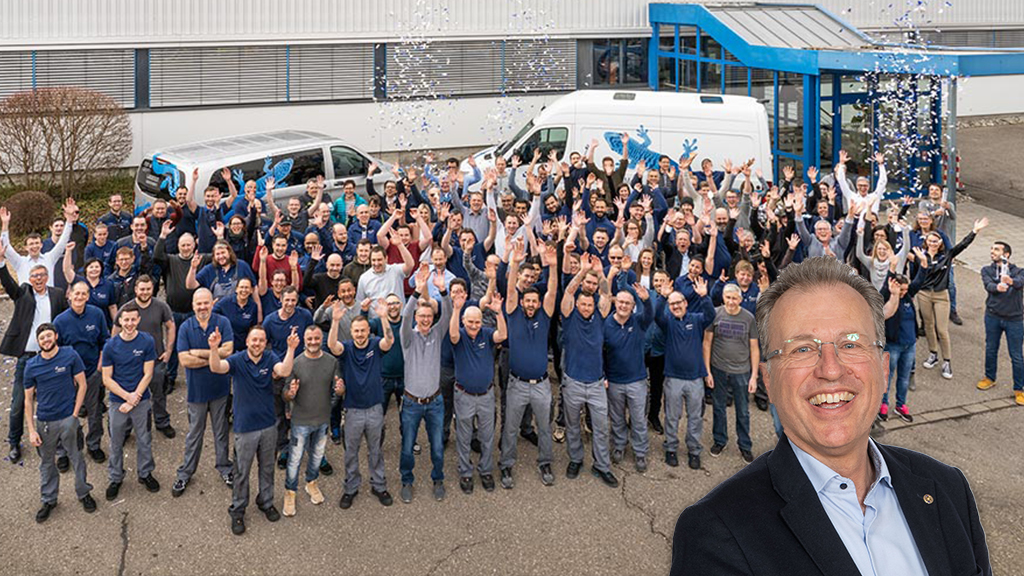No company can exist without customers. Only through customers, through someone who pays good money for the benefit of a product, the benefit of a service, does a company come into being. That is actually trivial. But, according to my impression, this is quickly and thoroughly forgotten again in many companies: the customer is forgotten ...
The consequences for companies are far-reaching. For the organization. For the corporate culture. For the understanding of what constitutes good business. I would like to show you what happens when you put the customer at the center of your business activities, based on everyday working life at allsafe ...
First the customer, then the boss
Almost all companies write nice and good-sounding things about their customers in their mission statements and express their claims and declarations of intent to treat customers well in their values.
But take a look at the organizational charts of the companies. What do they look like? In classic organizational charts, I have the image of the hierarchically organized pyramid in mind, you find the customer first - at the very bottom. At the top comes the boss ... The customer only gets attention after the CEO, after the department heads, the employees, the processes.
As a result, customers are often only a marginal part of the company's daily routine and are sometimes even perceived as a disruptive factor. And then it's: "Here comes another call ...", "Here comes another customer order ...", "Here comes another complaint, what is it?" Call centers are a classic expression of the fact that in a corporate culture the customer is basically seen as a disturbance: If a company does not want to be disturbed by customers, then it shifts its customer contacts to a call center. The company then revolves 'undisturbed' only around itself.
Not so at allsafe: With us, the customer moves to the center of the company's organization, he is its linchpin and thus also of the company's everyday life.
The customer moves to the center
The idea that the customer is the be-all and end-all of our business is therefore reflected in our organization: it resembles an inverted pyramid with the customer at the top, the pyramid is upside down, the customer is the determiner.
What does that mean?
'What can I do that benefits the customer' is the question that determines what happens, no longer a classic decision maker.
Such an inverted pyramid thus has exciting implications for the values that then give rise to the corporate culture: Because in order to find answers to the question of customer value, for example, curiosity becomes an important corporate value.
Through this curiosity, looking at customer value in everything that happens in the company, with which we analyzed the "value stream" in sales, development and production, that is, what has value for the customer, we found out at allsafe that we needed a different organizational form ...
Customer orientation: Working with little hierarchy and responsibility
Because customer orientation is the core value par excellence for us in the company, we have found that we can do better justice to this if we no longer think of allsafe as a company in terms of departments. We think less hierarchically and more in terms of processes, in terms of procedures that have the benefit of the customer as their goal. This is how you get to our allsafe process organization.
This organization works with autonomous teams that act in an interdisciplinary manner for the benefit of the customer. All this without departments; we have no direct line managers. And so we work in a culture in which everyone is directly and personally responsible for the customer - and thus, of course, for the company's well-being.
Customer orientation, as we live it at allsafe, ensures that - in addition to curiosity - the values of freedom and responsibility are also central to our corporate culture. A pair of values that are mutually dependent: no freedom without responsibility. At allsafe, those who want freedom also take responsibility: directly in their task, for the customer's cause, and for allsafe as a company.
Certainly exhausting, and for some also unfamiliar, to work in such a corporate culture. But many colleagues come to allsafe precisely because they can work with a low hierarchy and direct responsibility. You no longer have to ask the boss for every little thing, but can coordinate with your colleagues with a view to customer benefit.
A culture that is expressed, for example, in the fact that all employees at allsafe have been working in trust for 20 years and that we pay really fair annual salaries.
A culture that means that colleagues approve each other's leave, that you answer such questions yourself and work accordingly, like: 'When do my customers need my expertise? How do I decide when a customer complains? Do I provide a replacement, for example, because I think it's fair and such a replacement serves the customer and the good of the company? When am I in the office, when am I in the home office?'
All decisions that are made straightforwardly and directly by employees on the basis of the values that are important to all of us: Customer focus, curiosity, trust, freedom and thus fairness, which guides our daily actions. A daily operational routine with which you take the customer and his benefits seriously in a way that, for me, leads to healthy and sustainable business.
Detlef Lohmann
